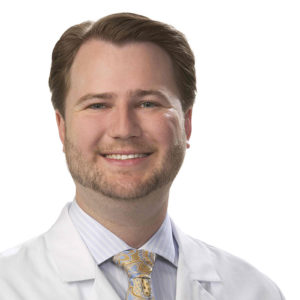Be an Advocate

I would like to extend my gratitude to Jay Morgan, who has been an exemplary leader and exactly the WCMS president this year needed. His level-headed leadership and guidance led us through a year in which, though I may have doubted a lot, I never doubted the WCMS or Dr. Morgan. Jay, thank you.
It is my pleasure and distinct honor to be president of this organization. I have been involved with organized medicine in some capacity since my very first year of medical school. And in those early years, when I was the only one, I was the de facto head of recruiting. I was also treasurer, but because we had no money, that was pretty easy. Plus, as a student, it was pretty easy to convince other students to join. There was free food, and everyone mostly had the same interests: graduate, get into a residency, and show that you were engaged along the way.
As we all spent years in our respective specialties, it became easier to focus on specialty-specific issues and playful rivalries (surgery/medicine, hospitalist/consultant, physician/APP). But what I always thought was the beauty of organized medicine like the Washoe County Medical Society, is that it has always recognized that our shared interests and goals outweigh the minute differences between us.
Nothing has demonstrated that more than the challenges of this past year. Though we began the year like any other, COVID quickly tested us in ways unlike any of us have faced. It impacted us personally, and it impacted us professionally. For some of us, it was far fewer patients and canceled procedures. For others, it was many more patients and difficult decisions. Across the spectrum, this pandemic has demonstrated the fundamental need for a trusting relationship between physicians and patients. This trust must extend beyond a hospital bedside or the exam room. This trust must persist across time and disease states. And this trust is necessary whether in person, via video, or through the media, as public servants like Dr. Fauci have demonstrated.
The future of medicine, based on this trust, will rely even more on the physician-patient relationship. Over the years, we have been increasingly disconnected by coding requirements, increasing documentation complexity, EMRs, computer screens. We become disconnected through burnout, through politics, through social and societal crises. But the fundamental element remains: our position as physician is established through our relationships.
That means we must act to remove the elements that reduce the quality of these relationships. We can do this by advocating to reduce paperwork, simplify coding, reduce EMR complexity, support our colleagues, or improve social determinants of health. We must act to improve public health. I believe that’s why we are all here. We each have our areas of passion and skill, but when we work together, we do more for the greater good. It’s the work of advocacy—something we are uniquely positioned to do.
We already act as advocates for our patients and provide counsel to those around us. Just recently while on service, I was talking with a social worker who regularly interacts with patients, including those who have active COVID infections. She told me she was afraid to get the vaccine because she had had allergies as a kid. I listened to her concerns, shared my own experience getting the vaccine, and shared why I knew it was safe. I asked her to consider getting the vaccine. She demurred, saying she would think about it. But two days later, she proudly rolled up her shirt sleeve to show me her Band-aid®. It’s not because I had a magic wand, but that I was willing to listen and share my knowledge. Similarly, our medical society is well-positioned to listen and be experts. In this way, the Washoe County Medical Society advocates for our broader community. The work we do, multiplied across our membership, will have us working together to truly transform our community.
I am excited for this year, and not just because the bad 2020 jokes will stop. For the first time in most of our careers, we will see the direct impact of our work not just on a patient, but directly on our whole society. As an internist, I am used to interventions having no visible benefit for patients over the course of months, years, or even decades. (I will admit, I am a little jealous of my surgeon colleagues who get to fix things in real time.) But this is the year in which medicine will directly improve society while we watch. Talk about a membership perk.
We have always understood our profession to be one of patient advocacy. It is encoded in the beneficence of our oath. And whether we realized it or wanted it, we are community leaders. In our case, it is as part of the Washoe County Medical Society, where we advocate on behalf of our broader community. This includes in those matters that impact health but are not strictly sick care or well care, like vaccines, food deserts, tort laws, and health insurance coverage. Because we take a human-centered approach to our advocacy, we set the groundwork to create and maintain trust. After all, it’s the foundation of our relationship with the community.
In a normal year, I would list specific goals or achievements we should accomplish, or projects we should undertake in the next twelve months. But because of uncertainty, I really only have one: be an advocate. It is our foundation. We know how to listen. We know where to go.
To my colleagues joining us on the board, Sharon Wright, Lars Webb, and Daniel Hansen, we are grateful you will share your wisdom. To Shaina and Bayo, who will take on this position in the coming years, thank you for letting me learn from you. And to my colleagues in the medical society, I look forward to a meaningful year with you. Thank you for being part of it.
